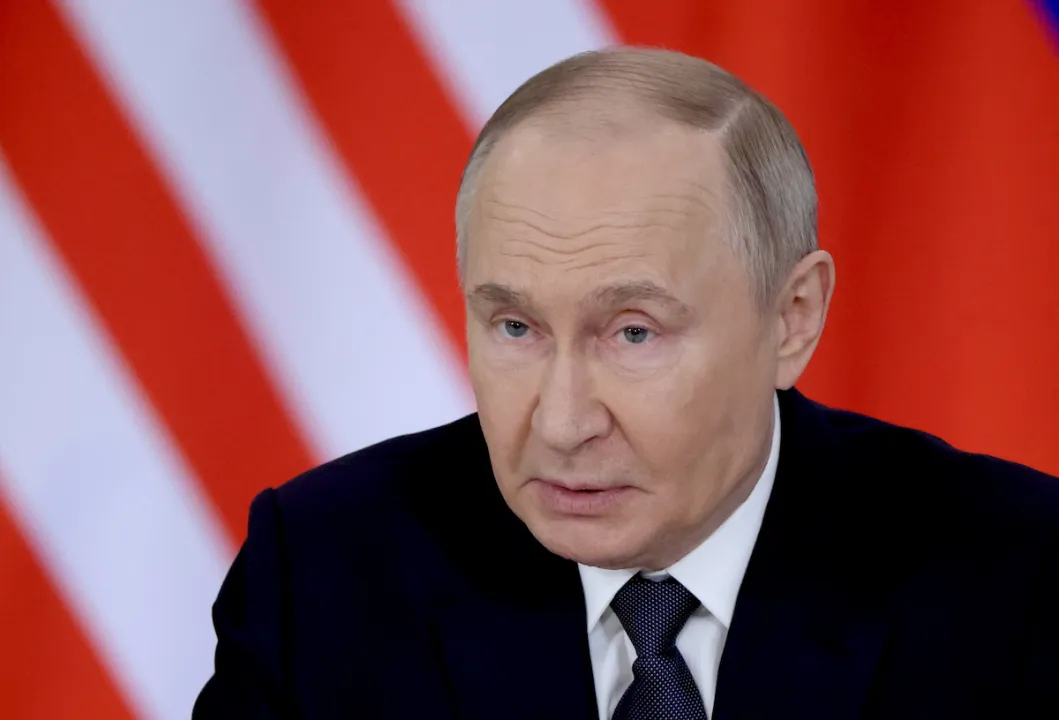News Flash

WARSAW, June 18, 2025 (BSS/AFP) - Vladimir Putin is eyeing the conflict
between Israel and Iran as an opportunity to thrust himself to the forefront
of the international stage, more than three years into his invasion of
Ukraine.
The Russian president has pitched himself as a possible mediator -- though
Moscow's closeness to Iran and Russia's invasion of Ukraine raise doubts
about what kind of role he can play, experts say.
The assault on Ukraine and the war in Gaza have strained Moscow's
traditionally good relations with Israel, home to a large Russian-born
community.
At the same time, Russia has deepened military ties with Iran.
But while Moscow was quick to condemn Israel's strikes on Iran last Friday,
Putin also wasted little time phoning both Israeli Prime Minister Benjamin
Netanyahu and Iranian President Masoud Pezeshkian to offer his role as a
peacemaker.
"By positioning itself as an indispensable intermediary, Moscow aims to
reassert diplomatic relevance despite its pariah status in Europe," said
Nicole Grajewski, an analyst at the Carnegie Endowment for International
Peace.
It also wants to protect its ally Tehran, facing a potentially existential
military clash.
"Russia does not want to see regime change in Iran, especially if it results
in a pro-Western government," she added.
Moscow and Tehran in January inked a far-ranging strategic partnership
agreement to broaden military ties, and Kyiv and its allies have long accused
Iran of supplying Russia with drones and short-range missiles.
- 'Not objective' -
Russia is also seeking to regain influence in the Middle East following the
fall of ally Bashar al-Assad in Syria.
"The regime change in Syria caused it to lose ground," said Tatiana
Kastoueva-Jean of the French Institute of International Relations.
Russia has previously used the region to boost its international standing.
After being hit with sanctions for the annexation of Crimea, Russia "emerged
from international isolation" by "becoming indispensable in the region,"
Kastoueva-Jean said.
Specifically, by backing Assad in the Syrian civil war and supporting the
2015 Iranian nuclear deal.
However, Moscow's much closer alliance with Tehran this time around could
disqualify it from playing the role of trusted mediator.
"Since Russia is seen as Iran's ally, and they have a strategic partnership
agreement, such mediation would not inspire confidence in Europe. Nor in
Israel," Russian political analyst Konstantin Kalachev told AFP.
"A mediator should not sympathise with one side," he added.
French President Emmanuel Macron is among those to have pushed back at the
idea of Putin as a moderator.
"I do not believe that Russia, which is now engaged in a high-intensity
conflict and has decided not to respect the UN Charter for several years now,
can be a mediator," he said over the weekend.
And asked if it had received a response to its overtures, Kremlin spokesman
Dmitry Peskov said Tuesday that Moscow saw "a reluctance, on the part of
Israel, to resort to any mediation services or to embark on a peaceful path
towards a settlement."
- 'Woo Trump' -
One person who does not seem concerned at a possible role for Russia is
Donald Trump, who said he was "open" to Putin playing middleman.
The US President is pushing his own rapprochement with Putin in a complete
overhaul of the West's attempts to isolate and punish him for the Ukraine
offensive.
Putin may welcome the opportunity to shift the conversation with the White
House just as Trump grows increasingly frustrated over Russia's ongoing
attacks on Ukraine and failure to strike a peace deal.
"Russia is trying to woo Trump on issues that go beyond Ukraine," said
Kastoueva-Jean.
Even before Israel launched its wave of strikes on Iran last Friday, Putin
was offering to help secure a deal between Iran and the United States over
Tehran's nuclear programme.
But for many the idea of Putin playing peacemaker, more than three years into
his invasion of Ukraine is a worrying prospect.
"It would legitimise Russia as an indispensable great power at a time when it
is waging the biggest war of aggression on European soil since World War II,"
said Anna Borshchevskaya, an analyst at The Washington Institute.